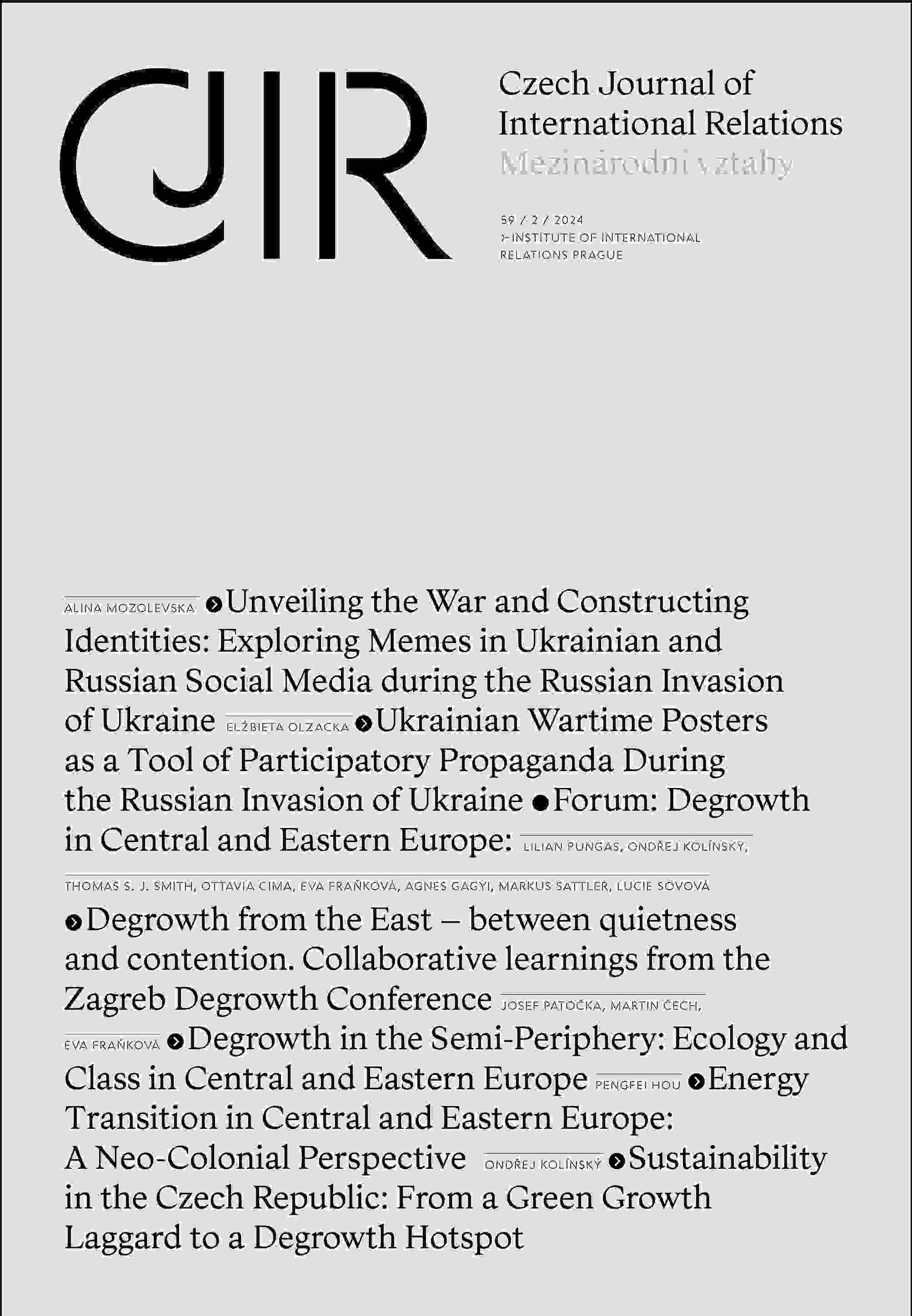Energy Transition in Central and Eastern Europe: A Neo-Colonial Perspective
Energy Transition in Central and Eastern Europe: A Neo-Colonial Perspective
Author(s): Pengfei HouSubject(s): Politics / Political Sciences, Supranational / Global Economy, Environmental and Energy policy, Political economy, Post-Communist Transformation, Socio-Economic Research, Geopolitics
Published by: Ústav mezinárodních vztahů
Keywords: energy security; energy transition; neo-colonialism; CEE countries; degrowth
Summary/Abstract: The article examines the neo-colonial influence in Central and EasternEuropean (CEE) countries’ energy transitions, relating energy neocolonialism with power asymmetries. Most CEE countries began to reducetheir reliance on Russian energy after the Cold War, elevating energy securityto new levels around 2010. Although European Union (EU) norms have helpedcounteract Russia’s influence on energy, they have brought about a neoliberalneo-colonialism. On the one hand, the CEE countries need reliable andaffordable energy supplies to maintain their economic growth, which leavesthem prone to the Russian influence. On the other hand, the EU’s energyrules and regulations, which disregarded the CEE countries’ interests, haveresulted in disobedience. The article employs the degrowth concept toexamine energy neo-colonialism in the CEE, contending that the conceptstands out as a hopeful signpost for realizing the scenario wherein the CEEcountries’ interests can be protected and prioritized.
Journal: Czech Journal of International Relations
- Issue Year: 60/2024
- Issue No: 2
- Page Range: 147-169
- Page Count: 23
- Language: English

